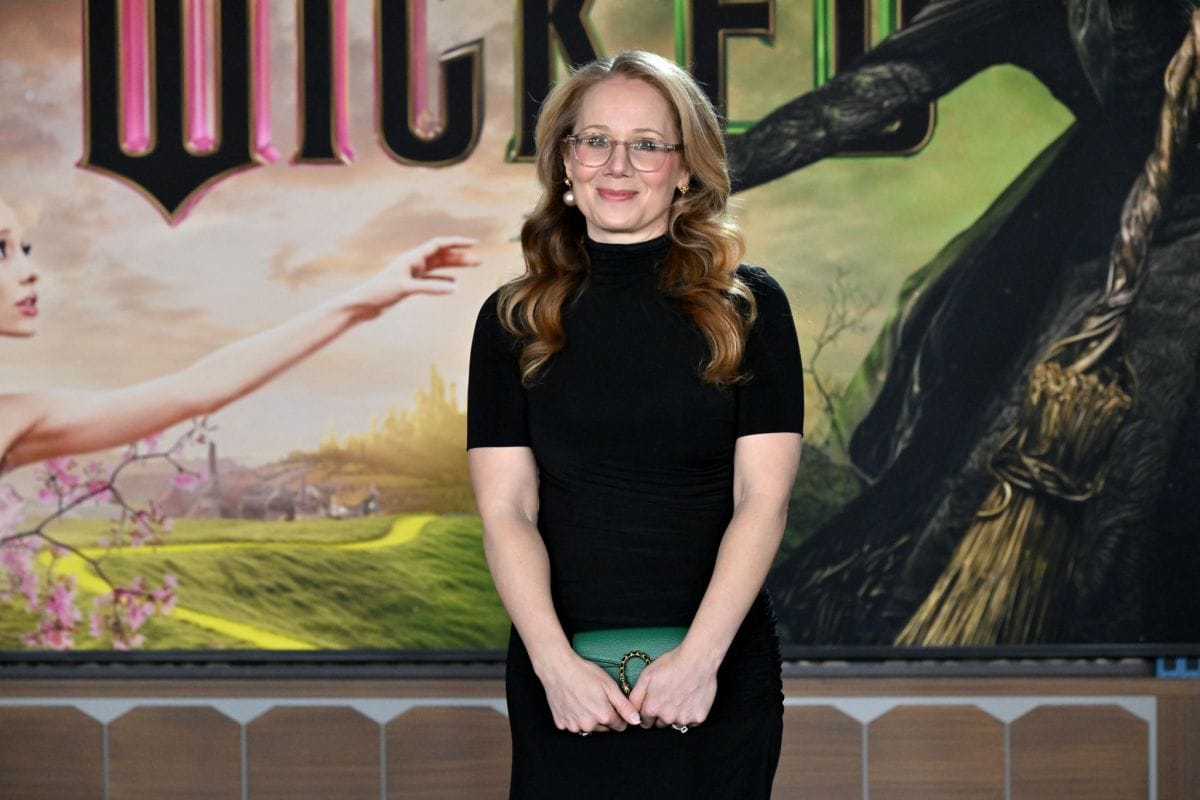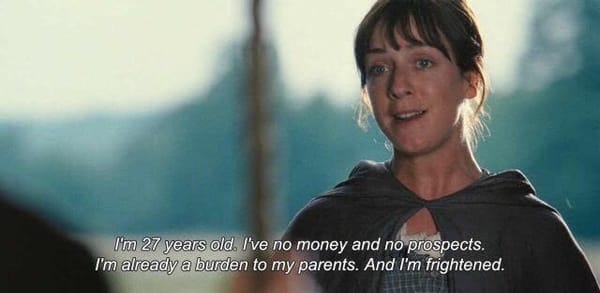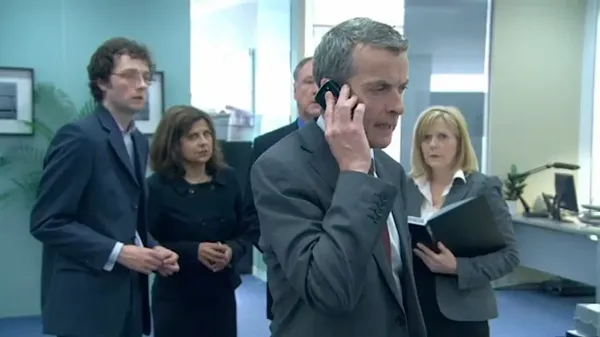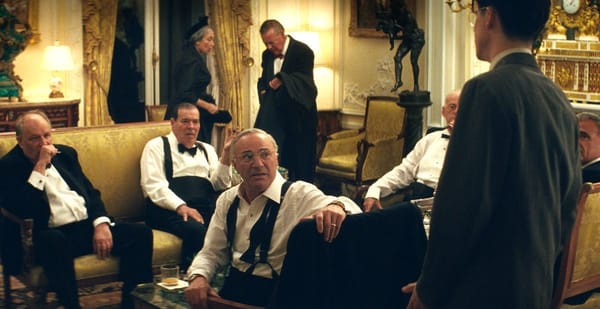Scriptnotes Recap: Episode 712, Wicked: For Good Co-Writer, Dana Fox

For those who don't know, I am John's assistant first and foremost. My role as the producer of Scriptnotes falls under the umbrella of my assistant duties. It's basically two full-time jobs smushed into one, but – and I mean this objectively – it's the best assistant job in the business. John's former assistants are also a murderers row of incredible filmmakers, and have all gone on to do amazing things. Dana Fox was one of the very first, and on top of that she's just cool.
She makes really smart and funny movies (reminder to watch The Lost City). When I got this job, amid all the excitement and questions that raced through my mind, I thought, "I wonder if I'll get to meet Dana Fox?"
Fast forward two and a half years to this year's Austin Film Festival, and I see Dana come into the Highland Pro party. I was so crazy nervous – What if I can't keep up with her jokes? What if she figures out I haven't seen Home Before Dark? – but after five milliseconds she immediately made me feel like I was talking to an old friend. I don't think that's because I was offering any compelling conversation at that sticky 6th street bar, it's because Dana Fox is exceptionally generous, unpretentious and kind.
So you can imagine how excited I was for this episode.
What Dana did on Wicked and Wicked: For Good is remarkable. To make something so big – with a lot of chefs in the kitchen, and with the maximum amount of audience and financial pressure – all feel so easy is nearly impossible. To actually improve upon something so beloved is bananas.
The magic of this podcast is always when John and Craig get the guests open up and drop their media training, so that everyone starts talking the same way they do when the mics are off. Sometimes it takes guests a while to relax, and sometimes it’s like pulling teeth. But Dana Fox leads with that open-book energy – like I said, she’s the gold standard – and the result is one of the most honest, insightful and personal episodes of Scriptnotes we’ve ever had.
Obviously listen to the whole thing, but I wanted to share some of my favorite moments:
Adapting Wicked from Page to Stage to Screen
John: The stage version of Wicked makes huge changes from the book. The central concepts come through, but it feels really different in story and how stuff is structured.
Dana: Yes. Though, I never read the book-
John: What!?
Dana: I actually hadn’t seen the musical. I’m literally the only American human who had not seen Wicked.
Craig: That’s crazy.
Dana: I knew it was popular, but I’m not super dialed in. I started working on it during the pandemic, so I couldn’t go to Broadway to see it. I had to watch the entire play in shaky clips online to put it all together.
The extraordinary Winnie Holzman and Stephen Schwartz took the main idea from the book, which was: What if this story – that you were positive you knew everything about – what if the bad guy was not who you thought they were? What if the person that was good was maybe not actually as good as you thought they were?
John: What if they were best friends?
Dana: What if they were best friends? Interestingly, Winnie told me the other day, Glinda wasn’t originally that big of a part. It was in meeting Kristin Chenoweth and becoming obsessed with Kristin Chenoweth that they decided that it had to be a true two-hander.
John: All these things that seem inevitable were not inevitable at the genesis of this. It’s that process of discovery.
Why Wicked Became Two Movies
John: So, the stage show is a huge hit. We all know it and love it, but eventually we’re going to make it into a film. Or, in your case, two films.
Dana: When I got involved, I was brought in by the director, Jon Chu, it was already established: “We’re making this as two movies. We can’t question it, and we can’t go back. We have to just do it.”
Craig: It feels so obvious now.
Dana: Well, now it does. Everything feels obvious now, but at the time, we didn’t know. Whenever people saw the first movie (thank God they loved it) it was wonderful. Everyone kept saying, “Well, it was obviously the right choice to break it into two movies.” I was like, “That’s because you haven’t seen the second movie yet.” I was like, “Hold that thought until–”
John: Let’s talk about this because the decision wasn’t to make one movie and see how it does, and then make the second movie. The decision was to make two movies at the same time.
Dana: Yes, which means you can’t screw anything up because the first movie has to be a success, because you’ve already shot the second movie.
John: Were they cross-boarded? Were you shooting scenes from both at once?
Dana: 100% cross-boarded, and this is the brilliance of Jon and the group that he had around him, all the HODs were so extraordinary, and the brilliance of Cynthia Erivo and Ariana Grande, that they could shoot Movie 1 in the morning and Movie 2 in the afternoon.
They’re in completely different costumes, totally different hair, playing different characters. They had to use different perfumes depending on which movie they were in because they had to sense things to trigger who they were. They had different playlists for the two movies for themselves to listen to because throughout the day, they had to keep it straight.
Craig: Because it was based on location.
Dana: It was all locations, basically. We had 73 sets, and we were turning over sets constantly. These sets were enormous. Nathan Crowley, who’s our production designer, is a genius. He’s absolutely extraordinary.
This is a big, beautiful Hollywood movie from the old days. You can’t believe this movie got made. These giant sets that were real, and everything was real. If it’s out of focus, it’s because a person was doing it. There’s no AI. It feels so much like the movies that got us all to be in this business in the first place.

Expanding Act 2 into a Full Feature
John: One of the real challenges adapting Wicked is that we remember what happens in Act 1. But Act 2 races through a bunch of stuff very quickly so you have to make much bigger choices about storytelling.
Dana: That’s exactly right. That was the exciting challenge of it, that the second act of the play is 45 minutes long. This movie is 2 hours and 14 minutes. We obviously created a lot of new material for the second movie.
Then you’re looking at, “Okay, this is a moviegoing experience. People are used to a one, two, three-act structure.”
John: You’ve got to ramp up.
Dana: You ramp up. You’re a little slow. You’re like, “Where are we now? Who are we? What are we doing?” That was the big fun of trying to figure out Movie 2 is how do we remind people where we are? How do we get them used to how much has changed in the time lapse between the two movies? That was actually a big discussion, was how much time to have passed during the two movies.
Craig: 30 years later?
Dana: We were like, “Oh, it should be how much time passed for the audience.” It should be a year because the movie is coming out a year later.
Writing the scripts for Wicked and Wicked: For Good
John: Talk about the writing process on this because not only did you shoot both movies simultaneously, you also wrote both movies simultaneously.
Dana: Winnie had done a lot of work before any of us came on. That’s why she has that solo credit. She had been working on trying to make this into a movie for 15 years before any of us were involved in the process.
John Chu said, “We’re going to work all of us together. Me, Jon, Winnie, Stephen, and you. We’re going to get into Zooms, and we’re going to break both movies together,” which I’d never done before with a director. I was so excited to be able to do it because it felt like every day we weren’t just breaking the story or writing the script, we were making the movie. We spent 153 hours on Zoom before we ever started writing.
Craig: Horrifying, just so much–
Dana: That was the ideation period, where we broke them into two movies. We had digital cards that we had made, and then I started outlining from off those cards. I outlined both movies. Then Jon basically was like, “Okay, we’re going to split up Movie 1 between you and Winnie, and you guys are going to write it together.” We wrote Movie 1 together as quickly as we could because we already had stages booked.
While Winnie worked on notes from Jon and Mark. I wrote the second movie. Then, from that point forward, Winnie and I were collaborating, but we were each in a different movie. When I was in Movie 2, she was in Movie 1 and vice versa, but we were still working with each other. It was like I would send her a scene I was writing from Movie 2 and be like, “This is hot trash garbage. How would Glinda say this thing, because I’d want her to blah, blah, blah?”
That was how we got the work done.
Building Creative Partnerships
John: I want to back up because you first worked with Jon Chu because he was a director on your TV series.
Dana: Yes, that’s right. He had shot Crazy Rich Asians, but it hadn’t come out yet, and I needed someone to direct the first two episodes of Home Before Dark, which is my Apple TV series. I met with him and he showed me the trailer for Crazy Rich Asians, which had not come out yet. From the trailer, I was like, “You’re a genius. This is going to hit. This is so universal. This is incredible. I love you. I want you to do this.” I was trying to hire him off of a trailer.
He did the most extraordinary job on the TV show. He brought in Alice Brooks, who is the DP of Wicked, to do my show. He brought in Myron Kerstein, the most brilliant editor you’ll ever meet on planet Earth, to do my show. I got to work with all his people. It was extraordinary.
John: I want to stop you for a second because it’s just such a good reminder of the relationships you form and the trust you form and being able to see what a person is like as a collaborator. You were hiring him, but then he’s actually hiring you because he can see, “Dana gets it. We have a shared vision. I know that she can deliver this thing.”
Dana: He’s the most extraordinary director, but he’s so collaborative, also, and he makes me want to be a better man. He’s that guy. I told him, “Anytime you want me to do something, I’m going to say yes.”
He called me after I finished Lost City and said, “I have another one for you. Do you want to know what it is?”
I said, “No. The answer is yes."
He was like, “That's stupid. I’m going to tell you anyway. It's Wicked."

The Emotional Toll of Writing
John: You know that you’re making two movies, but when you did the promo circuit last time, you could only talk about the first movie without acknowledging the second movie.
Dana: This is why they were all sobbing in their interviews, and everyone’s like, “Why are these people crying so hard in their interviews?” It’s like, “Because we just finished For Good. We’re not crying about Popular. We’re crying about the second movie.”
John: It was the experience of the movie, but also the trauma of making it a movie.
Dana: I had some health issues during it that were really difficult. The narrative I had in my head was that Wicked was what was killing me. Wicked is why I got sick. Then I realized while I was watching the movie that Wicked actually saved me.
It gave me stuff to do while I was feeling so sick. Every day gave me a reason to get up in the morning and try and care and feel something again. It is what ultimately made me feel better.
Craig: When you were working on it, before it was in production, you and your husband were in Calgary. I was there, and the two of us were just–
Dana: That was my breaking point. That’s where I was like, “I might have to quit because I think I’m going to die.” I was like, “I have to.” You were working on The Last of Us.
Craig: On the first season of The Last of Us, which was chaos.
Dana: You were like, “This is crazy.” And I was like, “Our health might be in danger.”
Craig: Yes, we were standing in a park going, “We’re dying, right? We’re dying.”
Dana: Yes, and you were so nice to me. I was like, “I think I’m dying.” You’re like, “It’s okay, because I’m also dying, so we could die together.”
Later I encountered a bear, and there was a moment where I was like, “Maybe it should eat me.”
John: Wow, it would be a way to go.
Dana: I was like, this would be a killer story, first of all. Then I would get out of doing the rest of this work, which is so intense.
Craig: Writing is so hard that a lot of times–
Dana: You want a bear to eat you.
Craig: I have told my assistant a number of times, "Listen, at some point today, don’t approach from the front, but from behind, hit me with a hammer as hard as you can, and just end this, so I don’t have to do this."
Dana: Hearing you say that, Craig, I think that helps me, and also all your listeners who are trying to be writers, that you also feel that way is amazing. I’m like, “I cannot believe how hard this still feels to me.”
Craig: Yet, every time I have a chance to stop, and I could stop, I do not stop. I never stop.
Dana: Oh, I could stop tomorrow, and I don’t stop. I’m crazy.
Listen to the full episode here or anywhere you get your podcasts.
For our entire catalog of conversations like this, sign up to become a premium member at Scriptnotes.net




